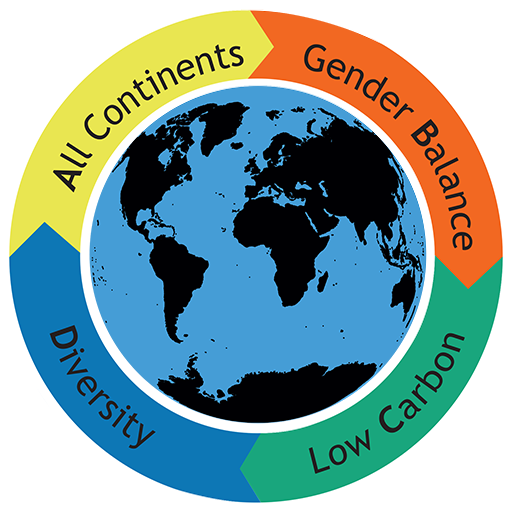Dr. Rosetta Blackman, Eawag & University of Zurich

Research:
“I am fascinated by rivers: understanding the processes within them and how this shapes biodiversity. Having used traditional morphological techniques to assess plant, algae and macroinvertebrate biodiversity for many years as a freshwater ecologist in the UK, I now utilise rapidly developing molecular tools, such as environmental DNA (eDNA), to detect biodiversity at a catchment scale.” (find out more at rosettablackman.com and follow @rosiecblackman)
Why the ABCD framework is important
“The ABCD approach to me is a much needed change in our attitude to addressing global issues such as climate change but also issues of inclusivity and diversity of scientists partaking in these meetings. Broadening our networks and establishing links globally will help our work in so many different ways.”
Prof. Dr. Ole Seehausen, Eawag & University of Berne

Research:
“I am an ecologist and evolutionary biologist, and a conservation biologist. I aspire to understand the evolutionary processes and ecological mechanisms by which biological diversity arises and those required to maintain it, and how biodiversity is lost through extinction and speciation reversal. My mode of operation as a scientist is try to learn as much as possible about how nature works by integrative in-depth investigation of a few biodiverse systems. I then apply, test, and refine what I learned by comparison with other systems to discover general rules.” (find out more here and follow @OleSeehausen)
Why the ABCD framework is important?
“Many fields of science, including my own, operate within very narrowly defined sectors of global society. Science then tends to be culturally and ethnically exclusive, suffers from inbreeding, and lacks the support that it needs to reach the people and the decision makers where outreach is most important, such as in combating the biodiversity crisis. The ABCD approach is our little contribution to be explicit about this and suggest ways to change.”
Prof. Dr. Florian Altermatt, University of Zurich & Eawag

Research:
“I’m interested in understanding patterns of biodiversity and the processes generating biodiversity. My group’s research focuses on spatial dynamics, and links biodiversity to ecosystem functioning at larger, regional scales, applying the concept of meta-ecosystems to dendritic, river-like networks. We also develop and advance methods to assess biodiversity using environmental DNA (eDNA) in riverine systems.” (find out more at altermattlab.ch and follow @altermatt_lab)
Why the ABCD framework is important?
“The ABCD approach developed in my mind based on my past experience on conferences: while many of them were great, I started to feel uncomfortable about the amount of traveling involved and I often was not seeing enough interactions beyond the circle of scientists I already involve with. Given the current biodiversity crisis, I think new ways of synthesizing knowledge and reaching also out to stakeholders are needed, and I think the inclusivity aspect of the ABCD format will help to do so.”
